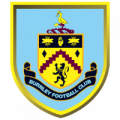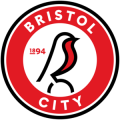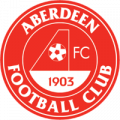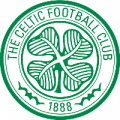Last month, James ‘Chunky’ DeGale achieved a lifelong ambition in becoming IBF super middleweight champion of the world. Travelling to his opponent’s backyard, he defeated Andre Dirrell in a close points decision at the Agganis Arena in Boston and in doing so, became the first Olympic gold medallist from Britain to win a world title.
Later this year, fellow Brit ‘Saint’ George Groves will be looking to emulate his bitter rival as he fly’s across the Atlantic to take on the recently crowned WBC champion Badou Jack from Sweden. Should Groves return victorious, the stage will be set for a huge domestic showdown with DeGale. There will be two world title’s on the line but that alone does not tell the story of how much a win would mean to both fighters.
You expect rivalries in boxing. The trash talk, the Twitter jibes, the press conference and weigh in fracases, the personal insults. There are lots of examples where there is genuine dislike between boxers; Nigel Benn and Chris Eubank, David Haye and Derek Chisora, Nathan Cleverly and Tony Bellew. One questions how much of this is animosity is real. Is this hate or just dislike? Is it a marketing tool to sell the fight? In the immediate aftermath, will the two embrace and celebrate the ‘journey’ they have been on?
With DeGale and Groves it is far deeper rooted than just a rivalry or general dislike. This hasn’t come about overnight and stems from their youth, where they were once good friends. As amateurs, both Londoners fought out of the same gym, the Dale Youth Amateur Boxing Club in Ladbroke Grove and often sparred and travelled together to amateur competitions. Both were very gifted fighters and, with the ego’s and confidence to match, were destined for great things. It was indeed that ego and confidence that would eventually lead to their rivalry. Both wanted to be the best in the country in their weight division. Both wanted to be the best at Dale Youth ABC in their weight division. They knew that the former couldn’t happen without the latter. At the national ABA (Amateur Boxing Association) championships in 2006 they came head to head and any friendship they had was now well and truly a thing of the past. Groves went on to defeat DeGale but many observers on the night knew this would not be the end of the story.
Despite his loss, it was DeGale who was chosen to represent team GB at the 2008 Olympics. He not only went on to compete in Beijing, but shocked many by winning Gold before turning professional the following year. His Olympic success had fast tracked him into stardom and the professional ranks, whereas Groves meanwhile signed to Hayemaker promotions in 2008 with little fanfare in comparison to his one-time friend. Groves had got the better of DeGale in the amateurs, but it would have grinded on him that ‘Chunky’ was now getting the plaudits and limelight.
The British public didn’t have to wait too long to see the two boxers fight again, this time as professionals. It is uncharacteristic for British promoters to pit two highly rated fighters against each other so early on in their careers, but in May 2011 at the O2 Arena, that is exactly what happened. In what was only DeGale’s 11th and Groves’s 13th professional fight, the build-up and interest in the fight was remarkable. This was largely due to the fact that fans could see that this rivalry and hatred was 100% genuine. DeGale was the protagonist in the trash talking, labelling his opponent as ‘Ugly Kid’ whereas Groves seemed to handle himself in a more professional manner. We had a villain in DeGale, but make no mistake, there was intense hatred on both parts.
In a very close decision which could have gone either way, it was Groves who won by a majority 12 round decision. The outcome of this fight significantly influenced the following few years of both their careers. The balance of popularity and stardom swung favourably in Groves’s direction. In his next six fights, he won 5 by way of knockout and had become a regular headliner on Sky Sports. DeGale joined Mick Hennessey promotions and his fights were being shown to limited television audiences on Channel 5 and even more limited gate audiences at venues such as a sport centre in Bristol and Bluewater shopping centre in Kent. This was not in the script for the golden boy of the Olympics.
In 2013, Groves had made himself a mandatory challenger for IBF and WBA super middle-weight champion Carl Froch and it was this that really propelled him into a boxing crossover star. The first fight ended in controversial circumstances, with referee Howard Foster prematurely stopping the fight in the 9th round in favour of Froch, despite Groves being ahead on all three judge’s scorecards and having put his opponent down in the first round. This led to a rematch, a fight which broke all kinds of records and captivated worldwide audiences much larger than just your boxing aficionados. The manner in which the first fight ended was just the start in building up the rematch. Groves acted the victim, felt he had been wronged and, unlike his mannerisms in the DeGale fight, did not shy away from the trash talks and the insults as he tried to get under Froch’s skin. In front of 80, 000 fans at Wembley Stadium on the 31st of May 2014, Froch threw a devastating right hand in the 8th round for a clean KO. Similar to DeGale, Groves’s ego and confidence before the fight, where he had promised to win by stoppage and refused to even contemplate losing, would potentially damage his stock as a fighter. If your promise to deliver is said with such conviction, when you get knocked out that conviction can be later deemed as over-arrogance.
However, unlike DeGale, Groves did not have to spend too long in boxing wilderness and just over a year later, he has secured a second mandatory world title shot in a fight which many expect him to win.
While the whole Froch Groves saga was taking place, DeGale had made probably the wisest decision of his career in joining Eddie Hearn’s Matchroom Boxing stable and rebuilding his career. Featuring on the Groves’s Wembley stadium undercard may have secretly riled up DeGale, but he seemed to be a new man. His egotism had been turned down a few good notches and it was his in ring performances that were doing the talking, with KO wins against highly rated fighters Brandon Gonzales and Marco Antonio Periban, leading to capturing the vacant IBF strap against Direll last month.
At the Rule Britannia card at the O2 arena last weekend, guest James DeGale received an incredibly positive reception from the fans as he showcased his belt whilst being interviewed in the ring. It seems the villain has now become the hero. The real life pantomime story of James DeGale and George Groves continues, but for now it seems ‘Chunky’ has the upper hand having beaten his rival to winning a world title and rekindled a relationship with the British public. Should Groves beat Badou Jack, with the history between the two fighters and two world belts on the line, DeGale Groves II could be even bigger and generate more interest than the ‘Saint’s’ second outing against Carl Froch at Wembley Stadium.








































